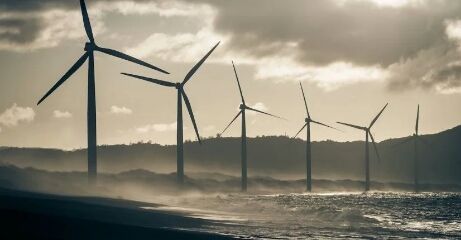 Blockchain startup BlockCypher has partnered
Blockchain startup BlockCypher has partnered
with a U.S. Department of Energy lab to
develop solutions allowing energy transactions
to be settled across multiple blockchains.
The energy agency's National Renewable
Energy Laboratory (NREL) and BlockCypher
first plan to demonstrate peer-to-peer energy
transactions involving distributed energy
resources (DER) over the dash cryptocurrency
network between two test homes in
the NREL's energy facility, said Dylan Cutler,
senior engineer for the initiative at NREL.
He said in a release:
"Blockchain technology presents a
transformative and highly scalable
platform for enabling distributed energy
markets, which could enable DER to
interact more effectively with the larger
grid. These interactions include more
efficient demand response, capacity
reserves, power quality support."
According to Karen Hsu, head of growth
at BlockCypher, people can exchange
renewable energy peer to peer with the
project's technology. "This would be
important in a natural disaster or when the
grid goes down for extended periods, just like
weve seen last year across the U.S.," she said.
The solution – which is planned to be
blockchain agnostic – would also help
streamline energy consumption by matching
power generation with demand, and reducing
power deficits during times of high energy
usage, Hsu added.
Smart meters with the ability to exchange
cryptocurrency for electricity could also make
the grid "more efficient and stable by enabling
the monetization of stored energy and energy
production at the endpoints of the grid," said
Dash Core's CEO, Ryan Taylor.
Globally, Australian , Japanese , and
European energy providers have been starting
to develop blockchain-based energy projects
in recent months.
Further, a research lab within the U.S.
Department of Energy revealed last October
that it is exploring the application of
blockchain in managing next-generation power
grids. In January 2017, the agency began
publicly soliciting blockchain research
proposals for "novel concepts for energy
systems that rely on blockchain."
Authors get paid when people like you upvote their post.
If you enjoyed what you read here, create your account today and start earning FREE STEEM!
If you enjoyed what you read here, create your account today and start earning FREE STEEM!